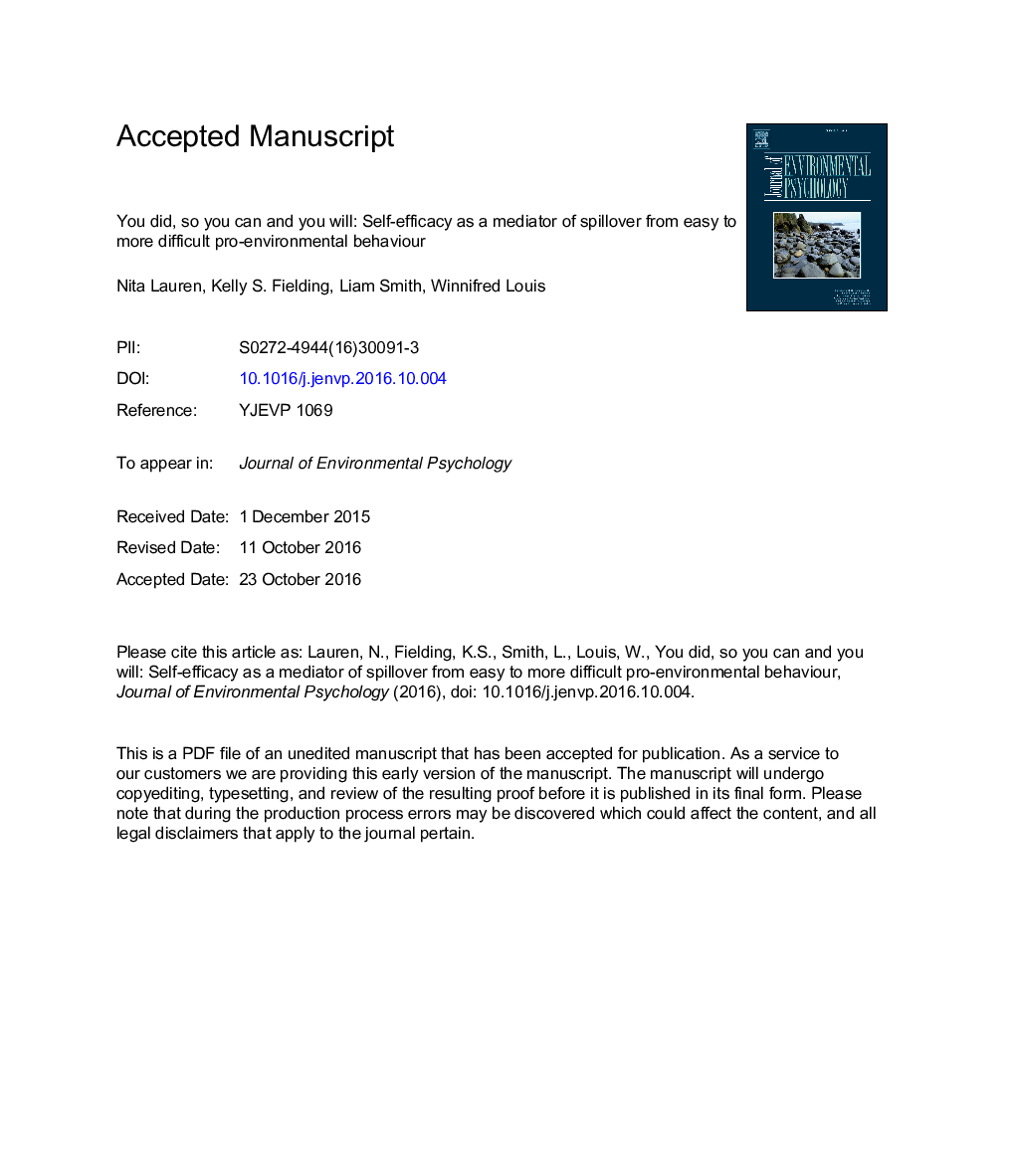| Article ID | Journal | Published Year | Pages | File Type |
|---|---|---|---|---|
| 7245398 | Journal of Environmental Psychology | 2016 | 40 Pages |
Abstract
The dynamic relationship self-efficacy holds with behaviour leads us to suggest that self-efficacy may be a mediating mechanism for spillover. We tested this proposition by investigating whether engaging in simple and easy pro-environmental behaviour is associated with self-efficacy, which then increases intentions and subsequent actions towards new or more challenging pro-environmental behaviours. We tested this hypothesis in two studies using Australian residents. The first demonstrated spillover from easy water-related behaviours to more difficult water-related behavioural intentions, and the second study used longitudinal data to provide evidence for spillover from easy water conservation behaviours to the more difficult self-reported actions of installing water efficient appliances. Both studies supported our prediction of self-efficacy mediating the relationship between easy and more difficult pro-environmental self-reported behaviour. These results suggest that self-efficacy may be an important motivator of environmental spillover, and could be used to help encourage engagement in more challenging pro-environmental behaviours.
Related Topics
Social Sciences and Humanities
Psychology
Applied Psychology
Authors
Nita Lauren, Kelly S. Fielding, Liam Smith, Winnifred R. Louis,
